The Global Fund for AIDS, Tuberculosis and Malaria (GF) is developing its new strategy available until 2021. In this context, in June 2015 an online survey was conducted with civil society actors in Latin America (LA). The survey consisted of 10 questions, inspired by the feedback provided by civil society (CS) in the Partners Forum held in Addis Ababa in April.
The main topics in Addis and therefore the areas of the survey were: 1) women, girls and gender equality, 2) Graduation and transition of middle income countries, 3) Community response and community systems strengthening 4) Financing the response and the funding model and 5) Human Rights.
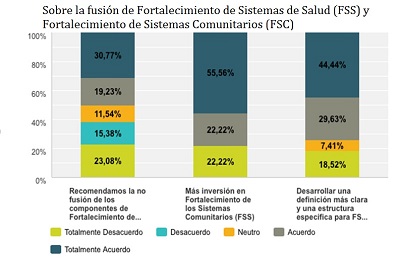 36 people from all countries of Latin America and the Hispanic Caribbean took part in the survey, with the exception of Chile, Cuba and Uruguay. Leaders and representatives of organisations of PLWHA, trans women, women living with HIV, sex workers and also five regional networks or regional initiatives participated.
36 people from all countries of Latin America and the Hispanic Caribbean took part in the survey, with the exception of Chile, Cuba and Uruguay. Leaders and representatives of organisations of PLWHA, trans women, women living with HIV, sex workers and also five regional networks or regional initiatives participated.
From the responses received, the following recommendations will be sent to the Global Fund Secretary and to some delegations of the Governing Board, as well as other strategic partners.
1. Women, girls and gender equality
There is a strong consensus in Latin America to support the recommendations made in Addis, with particular emphasis on the need for the GF to invest in and coordinate the promotion of sexual and reproductive health. The need to involve the population and support trans visibility is also highlighted.
Activists who responded to the survey agree that the GF has a good rhetoric on gender in their documents and forms, but that this has not translated into effective specific programmes. The GF has the role of catalysing the production of strategic information about this population. One proposal is that human rights, gender and key populations, in principle, remain independent and not included in a broader category where they do not stand out.
2. Graduation of countries and transition to the Global Fund
The feelings of respondents are synthesised by the perception of an absolute absence in the GF of a strategy for middle income countries and for Latin America, and of an unsatisfactory amount of thought given to poverty and concentrated epidemics when prioritising their investment.
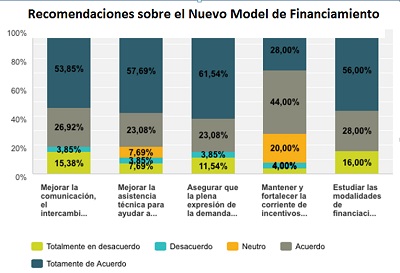 This has to be remedied in the new strategy. Also, there is a call for a review of the eligibility criteria. The control of government commitments needs to be established in the Concept Notes, it should be monitored, and its completion enforced.
This has to be remedied in the new strategy. Also, there is a call for a review of the eligibility criteria. The control of government commitments needs to be established in the Concept Notes, it should be monitored, and its completion enforced.
On the other hand, the GF should consider that some of our governments cannot even finance work with key populations and support civil society (once the GF retires from the countries) and this should have a more active role in the design of strategies for long-term sustainability.
3. On the Civil Society response
Participants in the survey agreed with the recommendations of their colleagues in Addis, particularly with the non-fusion of the Strengthening Health Systems (SHS) in Strengthening Community Systems – SCS (49%), and noted that the latter requires a greater investment (77%) and a clearer definition of SHS (73%).
Although the SCS comes included in GF programmes, the respondents consider that there is a lack of a clear definition and scope; for example, the possibility that civil society continues its advocacy role. SCS has been uneven and erratic and has only been superficially covered; therefore in the future, the GF should continue this type of investment, with improvements from lessons learnt in recent years. The strengthened community response is the way to overcome some of the structural barriers to prevention and treatment.
The survey participants were clear in pointing out that governments do not invest domestic resources in SCS and this is an important niche for the Global Fund in the future.
4. On the financing model
Participants in this survey have strongly supported all the recommendations of the civil society meeting in Addis on the financing model (FM). 81% agreed or strongly agreed with the need to improve communication, information and consistency of messages in national dialogues, and 80% agreed with the need to improve technical assistance. Also, a similar percentage of participants agreed with the need to promote and ensure the full expression of demand in the proposals and concept notes. Just over 70% agreed with retaining the financial incentive, but the strongest consensus was expressed in the need for the GF to study the specific mechanisms to invest in key populations.
5. About Human Rights
A significant majority, 84%, agreed that in the future the GF increase its investment in human rights organisations and programmes, especially those relevant for key populations. To do this, it is recommended that the GF continues to explore alternative funding mechanisms to restrictive countries or those whose governments are not willing to work with civil society. Also, the GF must improve monitoring of compliance and related human rights requirements, and in a similar vein, it should develop indicators and measurements.
Among other recommendations, the participants noted that the GF must urgently analyse their approach regarding strategies of combined prevention, engage in a dialogue with national actors in the removal of legal barriers and in promoting and protecting human rights and reducing violence against women and key populations; also it needs to participate more actively in the discussion of intellectual property laws and, in line with sustainability actions, advocate for lower prices and local production in Latin America.
A second study should be conducted based on the responses and feedback from civil society in the second Partnership Forum organised recently in Bangkok.
To see the complete survey results, you can visit this link (only in Spanish).
All items can be shared and published if the source of the data is cited.





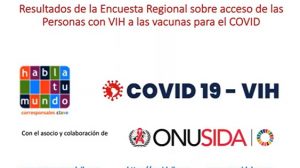
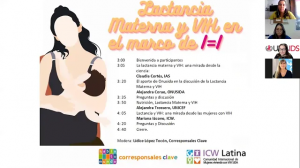
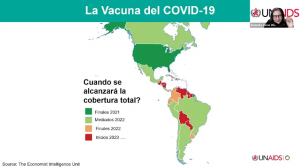
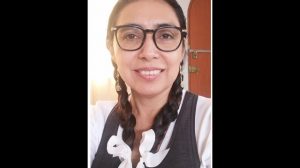

Añadir comentario